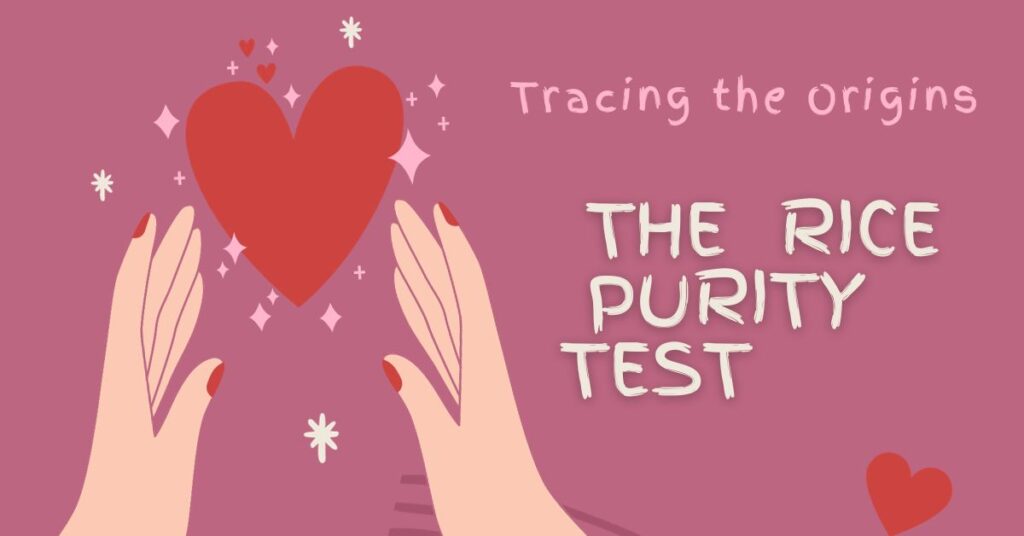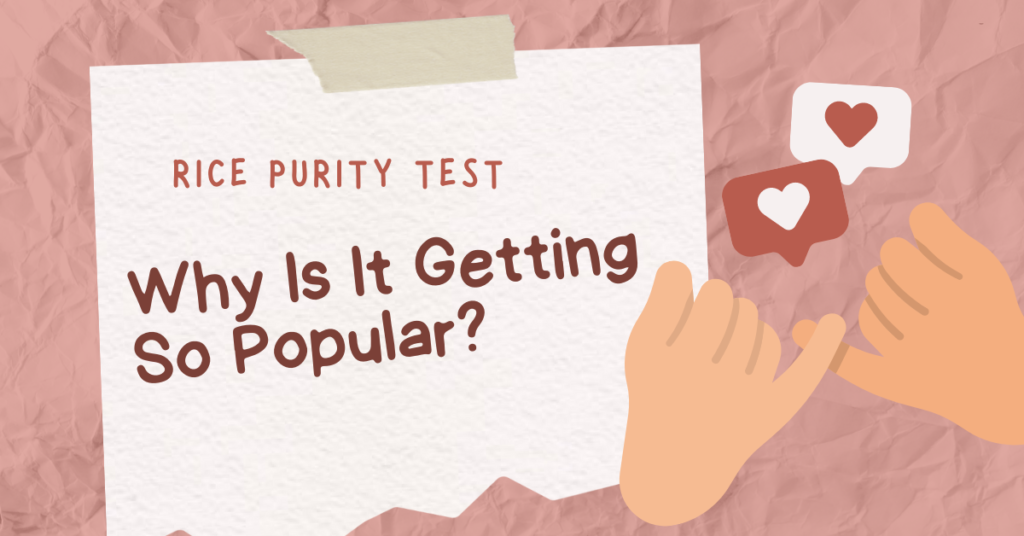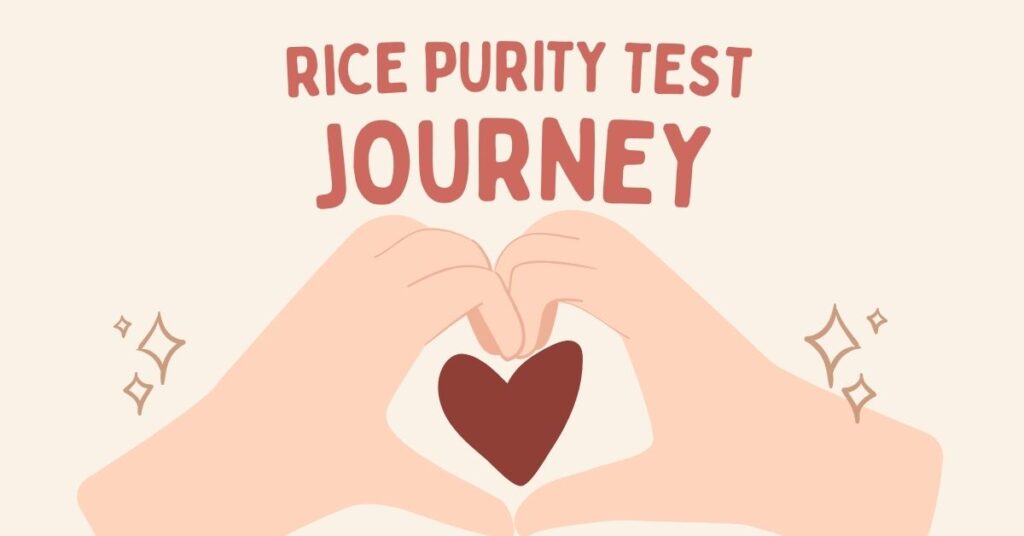David John is the founder and author of thericepurity.com, a website dedicated to the Rice Purity test. This well-known self-evaluation tool is divided into sections covering personal life, connections violating rules, undesirable behaviors and addictions, and physical relations. David's website provides a platform for individuals to explore and understand their purity levels across these areas, offering valuable insights and resources for personal growth and self-awareness. Through his writing and expertise, David aims to guide readers on a journey of introspection and improvement, helping them navigate various aspects of their lives with clarity and purpose.
The Rice Purity Test is a self-graded survey that originated at Rice University in Houston, Texas. It is designed to gauge an individual’s perceived innocence and purity based on their responses to various questions about their life, behavior, and experiences. The test typically covers many topics, including personal relationships, academic pursuits, substance use, etc. The test is an excellent icebreaker for conversations about controversial topics due to its lighthearted nature.

How Did The Rice Purity Test Start?
Rice University established the Rice purity test in 1924 as a secret survey of 100 questions designed to determine how ‘pure’ or ‘honest’ students were based on their responses. The test is constantly updated with new questions representing current values and customs as time passes and generations change.
What Is The Purpose Of Taking The Rice Purity Test?
The Rice Purity Test is a fun and lighthearted chance for people, especially college students, to reflect on and discuss aspects of their personal experiences and behavior’s.
The purpose of taking the Rice Purity Test can vary from person to person, but some common reasons include:
Entertainment: The test is designed to be amusing, and participants often take it in a spirit of fun and curiosity. It allows individuals to reflect on their experiences and playfully compare them with their peers.
Social Bonding: Taking the test and sharing scores with friends can be a social activity that fosters a sense of camaraderie. It’s a way for people to connect over shared experiences or differences in a nonjudgmental and humorous context.
Reflection: The questions on the test cover a wide range of life experiences, and participants may find it interesting to reflect on their values, choices, and behavior’s. It can prompt self-discovery and introspection.
Tradition: On some college campuses, the Rice Purity Test has become a tradition passed down from one generation of students to the next. It adds a playful and nostalgic element to the college experience.
Humor and Satire: The test often includes intentionally extreme or absurd questions, adding an element of satire. Participants may find humor in the exaggerated scenarios presented in the questions. It’s essential to approach the Rice Purity Test with a sense of humor and understanding of its informal and non-scientific nature. The results are not meant to be taken seriously and do not provide a valid measure of a person’s character or morality. Instead, it’s a form of entertainment and social bonding within specific communities.
Is There A Score For Taking The Rice Purity Test?
Taking the Rice Purity Test allows you to determine how “pure” or “innocent” you are in today’s cultural standards. Users get a final score of 0-100 after answering each of the 100 questions, and it can be compared to others who have completed the test. Challenge your friends and classmates and see who comes out on top.
What Are Some Variations Of The Test?
Rice University introduced the Rice Purity Test in 1924, and has undergone various modifications since then. Some versions are intended for particular audiences, such as teenagers or college students. In contrast, others focus on relationships or present a more humorous perspective on personal character with “What Would You Do For Fun” type assessments. Depending on the type, they all assess one’s moral character.

David John is the founder and author of thericepurity.com, a website dedicated to the Rice Purity test. This well-known self-evaluation tool is divided into sections covering personal life, connections violating rules, undesirable behaviors and addictions, and physical relations. David's website provides a platform for individuals to explore and understand their purity levels across these areas, offering valuable insights and resources for personal growth and self-awareness. Through his writing and expertise, David aims to guide readers on a journey of introspection and improvement, helping them navigate various aspects of their lives with clarity and purpose.


